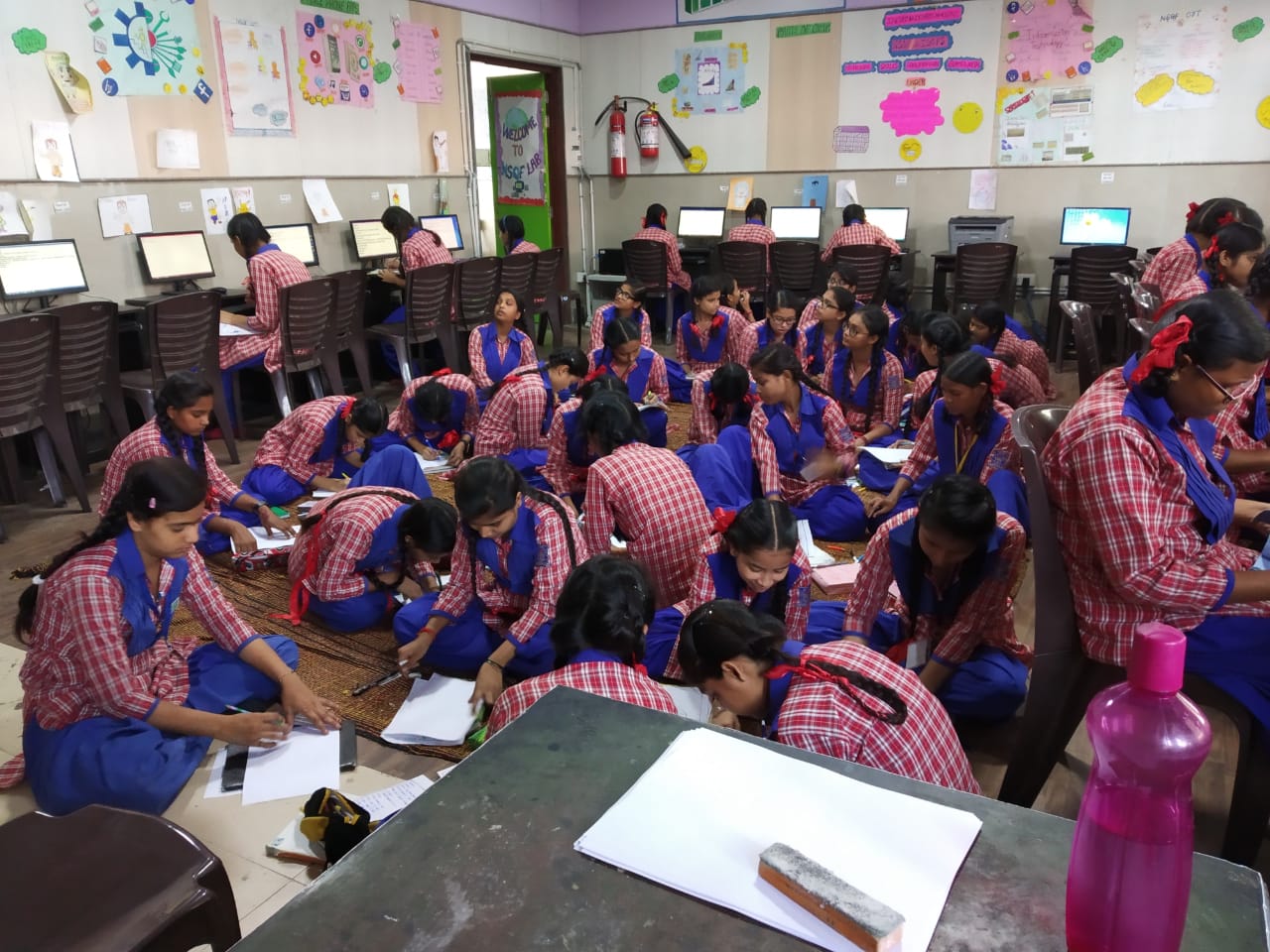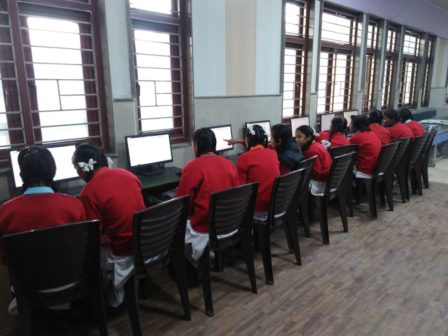“Catch them young” is an adage almost all of us would be familiar with. This quote applies well to the Centrally sponsored scheme for vocationalization of Secondary & Higher Secondary Education that is being implemented in 16 states, across 9 trades, impacting more than 1 lakh students. This scheme initiated by the Government of India, in alignment with the National Skills Qualification Framework (NSQF), establishes a system of clear educational pathways, from school to higher education, while providing certification of vocational skills.
NSQF is a nationally integrated education and competency based skill framework that provides for multiple pathways, horizontal as well as vertical, both within vocational education and vocational training, and among vocational education, vocational training, general education and technical education, thus linking one level of learning with another higher level. There are 10 levels in the framework, with the entry level being 1, and the highest level being 10. This will enable a person to acquire desired competency levels, transit to the job market and, at an opportune time, return for acquiring additional skills to further upgrade competencies.
 Implemented by IL&FS Skills Development Corporation (ISDC), the NSQF @ Schools initiative commenced in the academic year 2012-2013, in various states at level 1, touching classes 9th & 11th, in diverse Government schools, and has now been initiated for classes 10th and 12th too. The number of trades and schools are expected to increase every year, depending upon the resources, and various other factors. The objective of the project is to empower students with employability skills, with the initiative being jointly funded by the Central and State Governments
Implemented by IL&FS Skills Development Corporation (ISDC), the NSQF @ Schools initiative commenced in the academic year 2012-2013, in various states at level 1, touching classes 9th & 11th, in diverse Government schools, and has now been initiated for classes 10th and 12th too. The number of trades and schools are expected to increase every year, depending upon the resources, and various other factors. The objective of the project is to empower students with employability skills, with the initiative being jointly funded by the Central and State Governments
IL&FS’ Vocational Training in Schools:
Total number of schools – 1499, spread across 17 states and training in 9 trades
Number of students enrolled in FY 2018 -19 : 68000 approximately
The impact of the project is for all to see. Saroj Kumar, a student of class XII, vouches for vocational training as a springboard to professional growth, especially in a time when finding career-oriented jobs is tough. In the youngster’s words, the skill acquired at the school level enables one to save time, and be ‘future-ready’, without ‘wasting’ time.
 The intertwining of practical aspects with theory encourages an all-round understanding of the subject, adds Saroj. Lalita Rautela, another student, undergoing vocational training agrees with Saroj, and says that besides all the obvious benefits, levels of confidence are enhanced that help securing professional success to a large extent. This confidence coupled with know-how is a good mix, says the young girl, to acquire a professional standing at a young age. The initiative covers trades in diverse domains such as: Automobile, Retail, Apparel, IT-ITES, Healthcare, Electronics, Tourism & Hospitality, and Telecom.
The intertwining of practical aspects with theory encourages an all-round understanding of the subject, adds Saroj. Lalita Rautela, another student, undergoing vocational training agrees with Saroj, and says that besides all the obvious benefits, levels of confidence are enhanced that help securing professional success to a large extent. This confidence coupled with know-how is a good mix, says the young girl, to acquire a professional standing at a young age. The initiative covers trades in diverse domains such as: Automobile, Retail, Apparel, IT-ITES, Healthcare, Electronics, Tourism & Hospitality, and Telecom.
Parents have also accepted the benefits of introducing vocational learning in schools. Vinod Kumar, the father of class X student Uday Kumar, feels that not only does this training enable an edge in today’s competitive world, but also helps secure a wider scope and brighter future. Another parent, Prayag Lal son, whose son Manish is a student in the Commerce stream feels the introduction of the initiative has helped in defining a career path, besides, of course, other popular advantages. In addition, the skills Manish has acquired, finds application in the family’s professional work too, which serves as an added advantage. Ria Singh, a teacher, adds: “Vocational training provides hands on experience, irrespective of the domain, be it IT or any other. The advantage is that students receive the knowledge within the school itself, without any financial investment.
The change in personality, for the better, has been phenomenal.” Komal, a vocational trainer, echoes Ria’s sentiments, when she says that learning a vocation equips students with practical experience and technical skills in a specific type of field; students, according to her, hone skills such as adaptability, practicality, and personality development. Shashi Prabha, Principal, SKV Ghitorni, elaborates: “Learning a particular skill has multitudinous impacts. It ensures preparedness to embark on early earnings, becoming a master of a specific skill and valuing the dignity of labour. Students receive wide exposure through OJTs, guest lectures, field trips, and a host of other channels. I am also happy to notice a marked difference in confidence levels.”













Dear Respected I am Sahabuddin Shaikh a Trainer of sewing machine operator and design I like this